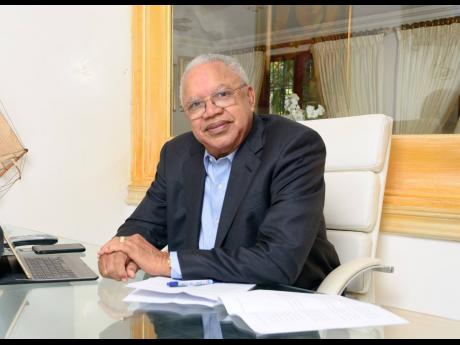Health Tech | How leaked health information can destroy lives
In Jamaica, we tend to not give much thought to the implications of health information leaks, perhaps because we are just entering the age of digital health and that has not yet posed a major issue. However, we have seen what has been happening with the financial industry and the distress it has caused individuals and losses to businesses.
Given that we are increasingly starting to use electronic records and other means of capturing patient information digitally, the issue of safeguarding health information will have to be made a priority.
The Data Protection Act is a step in the right direction and has broad applications for the healthcare industry.
The disclosure of sensitive medical details can unleash a cascade of problems that affect individuals, healthcare providers, and society at large. From privacy breaches to identity theft and beyond, the repercussions of leaked health information are profound and far-reaching.
At the heart of the issue lies the erosion of privacy. Health information, laden with intimate details about one’s physical and mental well-being, deserves the highest level of protection. When this information falls into the wrong hands, individuals can suffer irreparable harm. The very essence of their privacy is violated, leading to feelings of vulnerability and mistrust. Their lives could even become endangered.
SHATTER SACRED BOND
In many cases where a patient’s medical records are leaked without consent, their most personal struggles and ailments become public knowledge, subject to scrutiny and judgment. Such breaches not only undermine an individual’s autonomy but also shatter the sacred bond of trust between patients and healthcare providers and raises questions of accountability and responsibility.
When individuals fear the unauthorised disclosure of their medical history, they may withhold vital information from healthcare providers, compromising the accuracy of diagnoses and treatment plans. The erosion of trust between patients and providers creates barriers to effective communication and collaboration, leading to worsening health outcomes and preventable complications.
I have heard of instances in which people’s health information are made known in communities, often where community members also work in healthcare facilities. These leaks can subject people to stigma and discrimination, a major problem for persons living with HIV/AIDS, which can lead to their rejection and ejection from their homes and isolation from friends and family.
In addition, it affects them seeking care, which means that their condition will worsen. What was an easily treatable condition, becomes a death sentence.
Stigma and discrimination fueled by the disclosure of sensitive health information can also affect persons with mental health conditions, chronic illnesses, or reproductive health issues. In a society rife with misconceptions and prejudices, the consequences of such disclosures can be devastating.
Similar to what we have seen in the financial sector, leaked or hacked health information can also facilitate identity theft and fraud. In the wrong hands, medical data can be exploited to perpetrate various forms of financial crime. Fraudsters may seize the opportunity to concoct elaborate schemes, from falsifying insurance claims to obtaining prescription medications under false pretense.
This isn’t easy to mend. Victims of identity theft have to navigate through a labyrinth of bureaucracy and legal entanglements to reclaim their stolen identity. Not to mention the psychological toll of such violations can be profound, leaving individuals grappling with feelings of helplessness and betrayal.
Considering these challenges, safeguarding health data assumes paramount importance.
Healthcare providers must implement robust security measures, including encryption, access controls, and regular audits, to fortify defenses against breaches. The Hospital Information Management Systems used by the University Hospital of the West Indies and many other health technology software use these methods, as well as individual log-ins for users and an audit trail for activities within users’ accounts to ensure tracking and accountability.
Even with these measures in place, leaks are still possible and so it is important for healthcare providers to foster a culture of privacy and accountability within staff.
As we navigate the complexities of an increasingly interconnected world, safeguarding health data must remain a top priority. By upholding the principles of privacy, transparency, and accountability, and be guided by the Data Protection laws, we can mitigate the risks of breaches.
- Doug Halsall is the chairman and CEO of Advanced Integrated Systems. Email feedback to doug.halsall@gmail.com and editorial@gleanerjm.com


